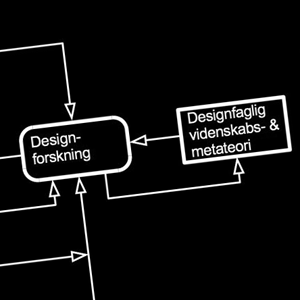Elementer af en fælles designfaglig videnskabsteori
DOI:
https://doi.org/10.7577/formakademisk.111Emneord (Nøkkelord):
design, forskning, designforskning, videnskabsteori, designfilosofiSammendrag
I tilknytning til designfagenes uddannelser til arkitekt, ingeniør eller designer, kombineres forskning og design på nye måder til, hvad man under ét kan kalde designforskning. Designforskningen er endnu ganske ung, og designfagene savner derfor en videnskabsteori, der tager hensyn til deres egenart og bidrager til deres selvforståelse, men som samtidig sikrer en fast forbindelse til forskning i almindelighed. I artiklen udvikles gennem en filosofisk orienteret begrebsanalyse et system af grundbegreber som elementer til en sådan designfaglig videnskabsteori. Begreberne design, forskning og designforskning analyseres, afklares og samordnes i relation til begreber som viden, teori og praksis. Det er samtidig hensigten at foreslå en præcis, men intuitiv fælles terminologi, der kan fremme forståelse og kommunikation på tværs af designfagene, og som de hver især kan bygge videre på til egne formål.

Nedlastinger
Ytterligere filer
Publisert
Hvordan referere
Utgave
Seksjon
Lisens
- Forfatteren(e) beholder sin opphavs- og kopieringsrett til eget manuskript, men gir tidsskriftet varig rett til 1) å fremføre manuskriptet for offentligheten i den opprinnelig publiserte digitale form, og 2) å registreres og siteres som første publisering av manuskriptet.
- Forfatteren må selv forvalte sine økonomiske kopieringsrettigheter overfor eventuell tredjepart.
- Tidsskriftet gir ingen økonomisk eller annen kompensasjon for innsendte bidrag, medmindre det er gjort særskilt avtale om dette med forfatteren(e).
- Tidsskriftet plikter å arkivere manuskriptet (inklusive metadata) i den opprinnelig publiserte digitale form, i minst ett dertil egnet åpent tilgjengelig langtidsarkiv for digitalt materiell, som for eksempel i de norske universitetenes institusjonsarkiv innen rammen av NORA-samarbeidet.
Verket vil bli publisert OpenAccess med en Creative Commons 4.0-lisens som tillater alle å lese, dele og tilpasse innholdet, også kommersielt, under lisensvilkårene:
Dette verket må tilskrives/ krediteres på riktig måte, en lenke må gis til CC-BY 4.0-lisensen, og endringer som er gjort må angis på en rimelig måte, men ikke på noen måte som antyder at lisensgiveren støtter deg eller din bruk.



